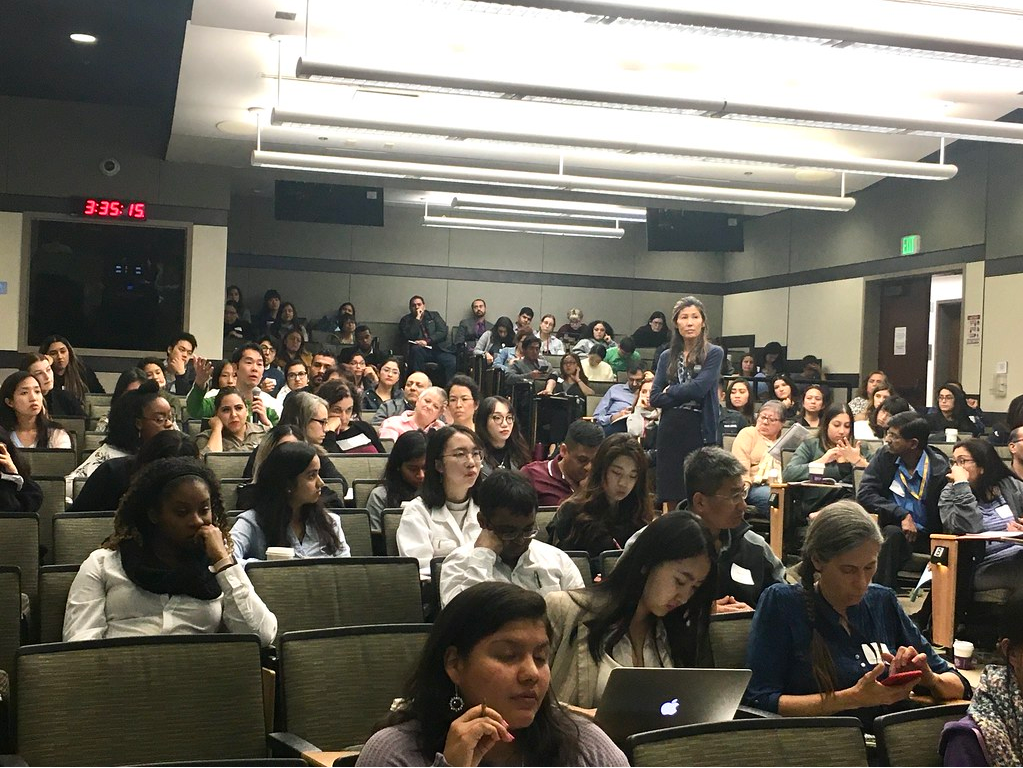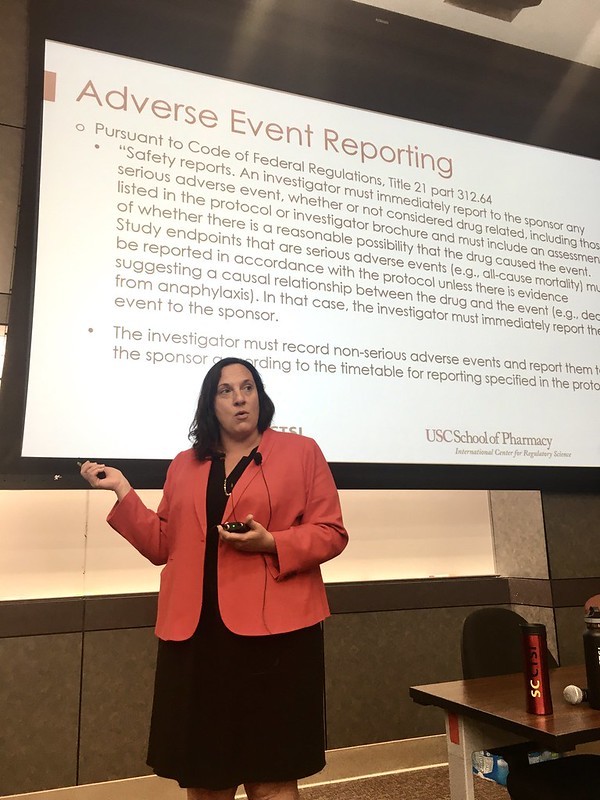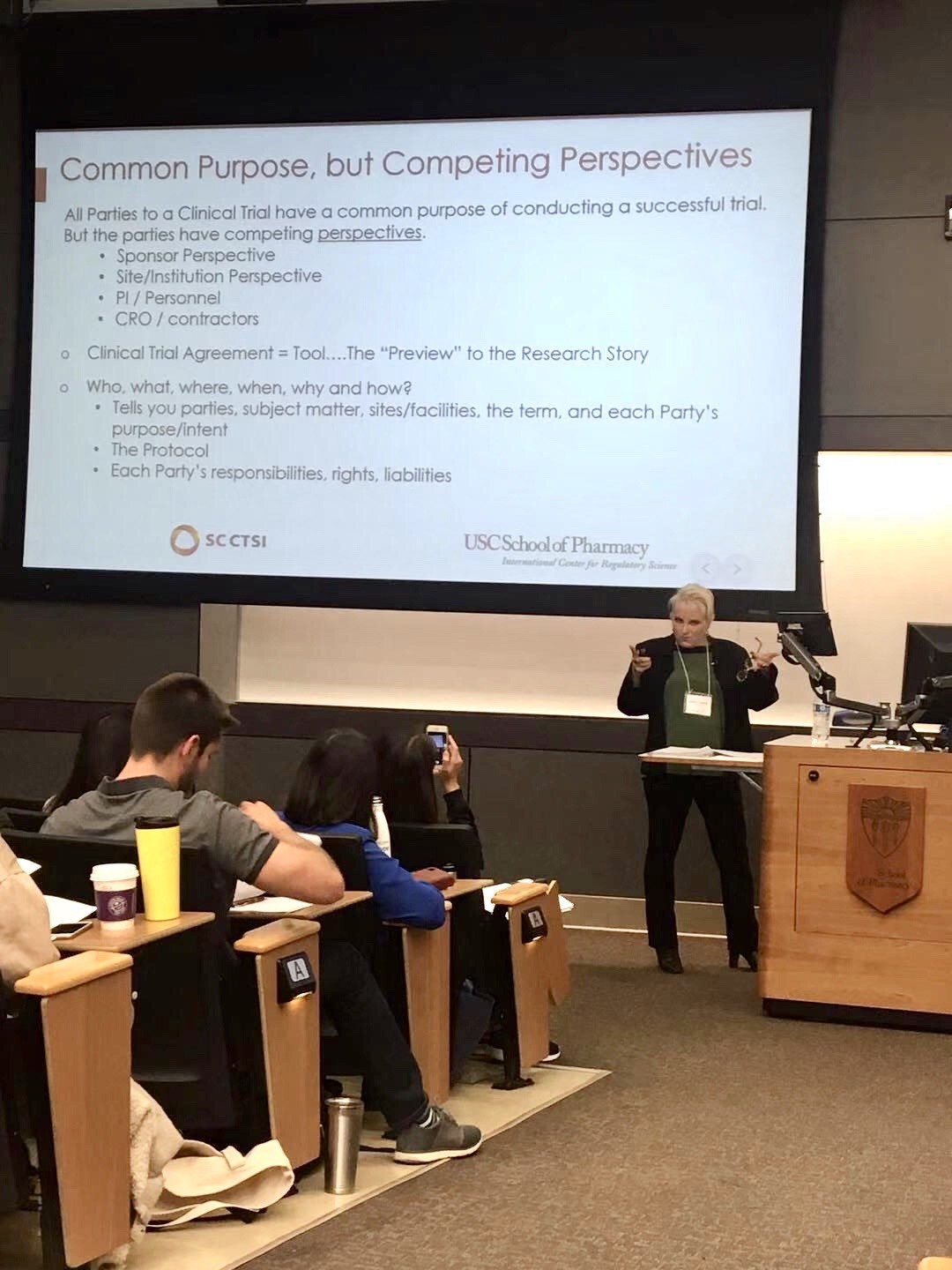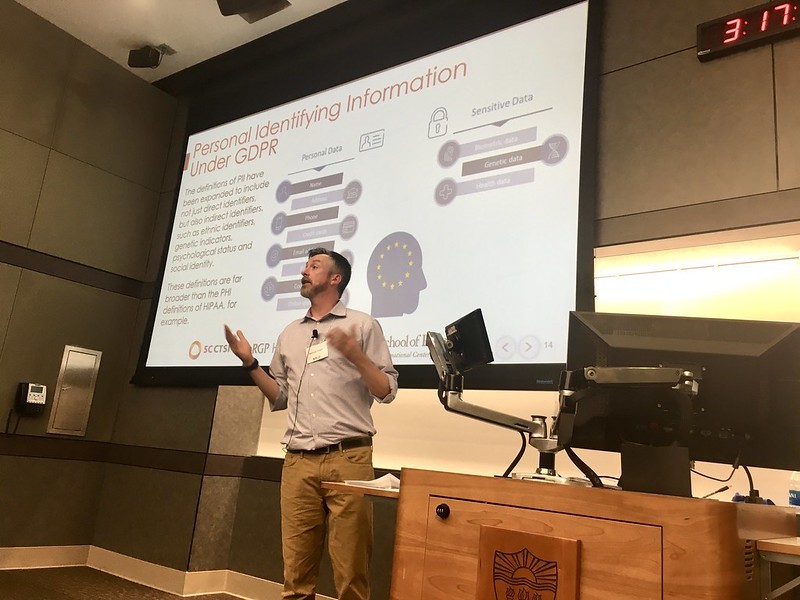Legal Aspects of Clinical Trials Discussed at Recent Regulatory Science Boot Camp/Symposium
Principal investigators and regulatory professionals must stay up-to-date with numerous legal requirements and strategies pertaining to clinical studies. These include U.S. Food and Drug Administration (FDA) forms, contracts with sponsors, liabilities, indemnifications, special use protocols, and inventions to protect. And then there are international laws.
An informed approach to various legal requirements of regulatory science can keep clinical trials running smoothly and avoid potentially serious problems that could disrupt individual studies or even careers. Investigators need to ensure that their legal strategy is as well-developed as their experimental design, according to experts who lectured at a recent presentation of the ongoing Regulatory Boot Camp/Symposium series.

Some of these legal considerations and requirements consist of filling out and submitting correct FDA forms. Other considerations are more complex, involving shared responsibilities involving investigators, industry sponsors, participants, institutions and other stakeholders, explained presenters.
"All of the various legal considerations must address not just U.S. federal and state laws and requirements, but also those of any other countries involved," said boot camp /symposium organizer Eunjoo Pacifici, PharmD, PhD, Director of International Center for Regulatory Science and an Associate Professor of Regulatory and Quality Sciences. "But clinical researchers, because of their focus on science during their training, may not get exposed to these issues until later in their careers as investigators. We felt it was important to provide perspective from attorneys and other regulatory experts to help accelerate the learning process."
Presenters and topics at the recent boot camp/symposium seminar included:
Nancy Pire-Smerkanich, DRSc, Assistant Professor of Regulatory and Quality Sciences, USC School of Pharmacy.
Pire-Smerkanich framed regulatory responsibilities for both industry and investigator sponsored trials, including U.S. and international legal requirements, recent changes in Good Clinical Practice and quality management guidelines, data handling, recordkeeping, and monitoring of clinical trials.

Melissa Archer, J.D., Director, Clinical Trials Office, Keck School of Medicine, USC.
Archer's presentation included an overview of essential terms in clinical trial agreements, contract terms impacting study conduct, budgeting terms and compliance with relevant laws, elements of a sponsored research agreement, protection and ownership of inventions, how to handle a principal investigator change, reporting of adverse events, and budgeting terms.

Kellie Ann Moore, J.D., counsel to pharmaceutical, biologic and medical device organizations for compliance with FDA and international regulations.
Moore discussed legal considerations of compassionate use options in clinical trials, including the specific steps required for application of the 21st Century Cures Act for expanded access to investigational new drugs and to medical devices. She also discussed issues of liability and indemnification, how parties involved in clinical trials must approach issues of liability and transferring risk, and insurance terms in contracts.

Terence J. Hogan, J.D., partner, subject matter expert in RGP Healthcare practice, with extensive background and expertise in legal, regulatory and compliance matters.
Hogan covered core concepts of privacy in the U.S. and European Union, including similarities and differences in regulations between the two regions. He discussed U.S. HIPPA privacy regulations, the European Union General Data Protection Requirements (GDPR) with respect to clinical trials, privacy considerations for various parties involved in clinical trials, risks of developing a trial protocol without considering privacy, penalties for non-compliance, how to contact private information, and understanding and assessing breaches in privacy.
The day-long boot camps/symposia are held several times per year at the USC Health Science Campus. Principal investigators and other experts from academia, government agencies, and industry lecture on important topics and changes in the regulatory environment. The popular seminars are typically attended by 100 to 200 clinical research professionals and students training for careers in drug development. The series is co-sponsored by the USC International Center for Regulatory Science, the Southern California Clinical and Translational Science Institute, and the Greater Los Angeles CTSA Consortium,
All regulatory science boot camp/symposium lectures are available to view after the event on the SC CTSI website. To sign-up for USC regulatory science boot camp / symposium updates, click here. Also check the Events & Deadlines section of the SC CTSI website for courses and registration details.



